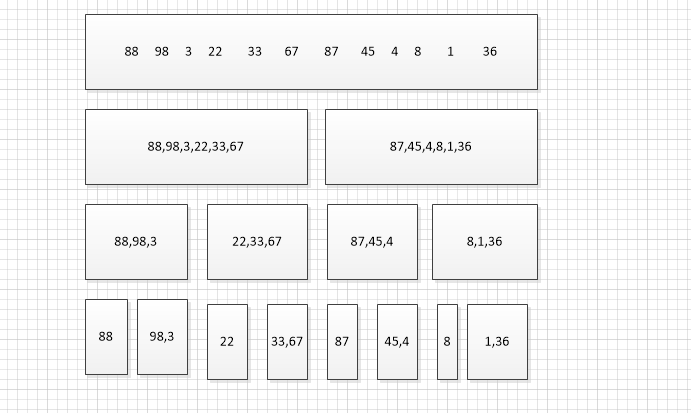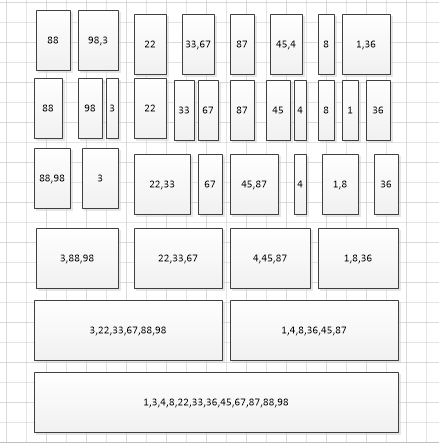spring
IOC控制反转
这里先说一下IOC,再说IOC在spring框架中的使用。
IOC的概念
IOC这个缩写有很多意思,比如
- 智慧城市智能运行中心(IOC)
- 奥林匹克运动的领导机构
但是呢,我们这里说的是面向对象编程中的一种设计原则。他的全称是Inversion Of Control即控制反转。这里有两个单词控制和反转。这两个单词单独拿出来会发现,都缺少主语。比如
- 谁控制了谁?
- 什么东西发生反转了呢?
控制
这里说一下第一个问题,谁控制了谁呢?看下面的代码
1 |
|
很显然,在这里,Person类的person对象的一切都控制在main函数里面。main函数创建它,使用它,销毁它。所以在当前上下文中,main控制了person。
反转
上面的写法main函数控制了person对象,这是一种紧耦合的关系,如果person发生了改变,我们就需要改变main。反转是控制权的反转。现在person的控制权在main这里,我们将它反转一下。不在用main控制它。那么我们加一个简单工厂看一下呢。
1 |
|
这里可以看到person的控制权转交给了Factory工厂,而main只有使用权了。当然了作为示例代码,这里的控制只做了创建。
现在,由main控制person改为了Factory控制person。如果person发生了改变,我们只需要改变Factory,而不需要动业务逻辑。
当然了,这种程度的解耦依然不够,因为main还是和Factory有耦合关系,他还控制了Factory。我们可以扩大这个简单工厂,扩大后的简单工厂就不再是工厂了,而叫做容器。我们把所有的控制权都交给容器,让容器控制所有的类,对象。而在使用的时候我们去告诉容器我们要使用哪个对象,让容器给我们提供就可以了。
DI
依赖注入 DI全称Dependency Injection就可以实现我们告诉容器我们需要的对象,然后容器把对象注入给我们的功能。
具体的依赖注入实现方式每个语言,每个框架可能都不一样,这里以spring为例
1 | public class main{ |
可以看到,我们通过@Autowired注解告诉容器,我们需要一个Person类型的对象,然后让容器把这个对象注入到我们的person属性中。这里仅做示例使用,具体情况请以实际开发中为准,实际开发中应使用接口类型。
容器中的实现方式就类似刚才工厂中的,假设你需要Person类型的对象,就new Person返回,当然了,要更加复杂,比如可以根据名称来反射创建对象,可以更好的管理对象的生命周期,可以实现单例对象等等。
spring中的IOC
Spring中的IOC实现也是通过容器,但是怎么把类注入到容器中呢,也就是怎么告诉容器,你需要实例化哪些类呢?有两种方式,一种是XML配置方式,一种是注解方式。
XML配置方式
先创建一个XML文件,比如:
touch bean.xml
接下来编辑它。
vim bean.xml
无参数构造方式
重点在这个配置,通过bean这个标签来告诉容器我要把哪些类注册到容器中,其中id就是注册后的唯一标识,我们获取的时候也可以通过指定id来从容器中获取对象。而class是告诉容器,我们具体要注入的类的路径。但是这时候没有指定参数,也就是说类似于Person person = new Person()这样的注册,需要有无参构造器。
1 |
|
使用的时候需要借助于Spring提供的容器获取,可以看一下效果是一样的。
1 | public class main{ |
构造器构造参数方式
同样在上面的XML文件中进行修改,但这次我们需要加上参数,并且告诉容器是通过构造器来构造参数的,而不是set的方式。
我们只需要在原来的bean标签中,加入我们要传给构造器的参数就可以了。
使用constructor-arg标签,name就是参数名,value是对应的值。
1 |
|
我们还需要改造一下原来的Person类,增加一个构造函数.
1 | class Person{ |
看一下现在的main函数
1 | public class main{ |
但是如果我们需要构造一个其他类的对象作为参数该怎么配置呢,毕竟我们总不能在value上面写new Class()吧哈哈。但是我们知道一个bean就是一个对象,那我们可以传一个bean进来就可以了。
来看一下配置方式.不再使用value了,因为value只能传基本类型这些,而其他的对象需要使用ref来传参。ref的值就是其他bean的id。
1 |
|
同样需要改造一下构造函数,增加一个avatar参数。
1 | class Avatar{ |
执行一下main函数。
1 | public class main{ |
set方式传参
除了通过构造器传参,我们还可以写set函数来传参,比如setName和setAvatar。
1 | class Avatar{ |
修改XML配置文件,不在使用constructor-arg标签,而是换成property。不过除了标签名变了,其他的属性name,value,ref都是不变的。
1 |
|
执行一下main函数。
1 | public class main{ |
自动注入
可以通过配置XML文件来使用自动注入,就不需要手动增加<property name="url" ref="avatar"></property>或<constructor-arg name="avatar" ref="avatar"></constructor-arg>的标签了,只需要配置一个属性autowire就可以了。但是这种的只适用于注入其他的bean。
autowire只有两个值,一个是byName,是通过bean的名称进行注入,比如你的属性名是avatar,就会查找id=avatar这个类。还有一个是byType,是通过bean的类型进行注入,比如类型是Avatar,那么就会查找class=Avatar的bean进行注入。
1 |
|
XML读取外部配置文件
通过XML可以读取外部的配置文件,这样的话像数据库,redis连接这些就可以把host,name,password这些写到外部的配置文件中。
配置文件使用.properties后缀。比如spring.properties。
增加一个配置文件spring.properties。
1 | spring.person.name=tony |
修改XML直接从配置中读取person.name来注入。读取的时候还需要在XML中增加context命名空间。并通过context命名空间来读取配置文件
1 |
|
注解方式
注解方式要比XML方式简单的多,其中原理就是不再手动配置,而是通过注解告诉Spring我是一个bean。快来注册我吧。
主要是这4个注解告诉Spring
- @Component 单纯的说我是一个
bean - @Service 和上面的一样,不过一般用在service类中,更加语义化
- @Controller 和上面的一样,一般用在controller类中
- @Repository 我也是一个
bean
接下来我们告诉Spring,你需要扫描出所有带上面注解的类,把他们注册到容器中。这一步需要修改XML文件,需要配置<context:component-scan>标签,并且通过base-package属性告诉Spring我们要扫描哪个目录
1 |
|
在类上面增加注解
1 |
|
还可以自己指定扫描哪些注解,通过context:include-filter标签来指定。type类型写注解,expression指定扫描哪个注解。把标签放在context:component-scan这个里面就可以了。还需要在context:component-scan标签中指定,禁用默认的扫描方式。指定use-default-filters的属性为false.
1 |
|
还可以排除一些注解不进行扫描,通过context:exclude-filter标签来指定。type同样写注解,expression指定排除的注解。
1 |
|
把类注册到容器中以后,我们还需要在使用的时候告诉容器,我们需要从容器中获取这个类,有5个注解
- @Autowired Spring提供的,基于类型注入的,可以放在setter方法上
- @Qualifier Spring提供的,基于名称注入的,一般和@Autowired配合使用来通过value参数指定名称
- @Resource Java提供的,可以基于类型或名称注入的,可以通过name参数来指定名称,可以放在setter方法上
- @RequiredArgsConstructor lombok提供的,基于类型注入,通过增加一个构造函数来注入。
- @Value Spring提供的,注入基本类型的注解,一般用来从配置文件取值。
@RequiredArgsConstructor是lombok提供的,兼容性较差,像写单元测试的时候就用不了,它会给你的类增加一个构造方法,而且只会给final类型的属性进行注入。
1 |
|
这个时候可以编译完以后查看.class文件,看到的是这样的
1 |
|
@Autowired是spring提供的,在spring中不管是写业务还是写单元测试都可以使用,它可以放在要注入的属性上面,也可以放在setter方法上面。使用他的时候不需要final修饰。
1 |
|
@Qualifier注解配合@Autowired使用,比如我们有一个头像的接口
1 |
|
这个时候我们在注入的时候如果只根据IAvatar来注入,容器就不知道我们需要哪个实现类了,所以我们需要指定类名.
1 |
|
@Resource更像是上面两个的合体,并且是由java提供的。也是可以放在属性和setter上面,并且不需要final修饰。
1 |
|
同样的,如果我们有多个实现类,需要指定可以通过它的name参数来指定。比如
1 |
|
@Value可以注入基本类型,比如字符串这种,但是更多的是从配置文件中取值。比如
1 |
|

